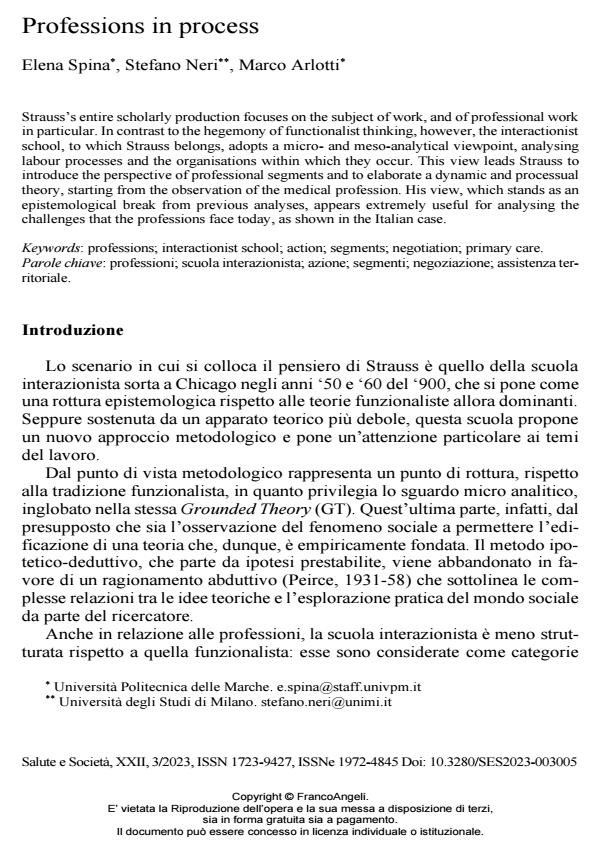Professions in process
Journal title SALUTE E SOCIETÀ
Author/s Elena Spina, Stefano Neri, Marco Arlotti
Publishing Year 2023 Issue 2023/3
Language Italian Pages 23 P. 58-80 File size 465 KB
DOI 10.3280/SES2023-003005
DOI is like a bar code for intellectual property: to have more infomation
click here
Below, you can see the article first page
If you want to buy this article in PDF format, you can do it, following the instructions to buy download credits

FrancoAngeli is member of Publishers International Linking Association, Inc (PILA), a not-for-profit association which run the CrossRef service enabling links to and from online scholarly content.
Strauss’s entire scholarly production focuses on the subject of work, and of professional work in particular. In contrast to the hegemony of functionalist thinking, however, the interactionist school, to which Strauss belongs, adopts a micro- and meso-analytical viewpoint, analysing labour processes and the organisations within which they occur. This view leads Strauss to introduce the perspective of professional segments and to elaborate a dynamic and processual theory, starting from the observation of the medical profession. His view, which stands as an epistemological break from previous analyses, appears extremely useful for analysing the chal-lenges that the professions face today, as shown in the Italian case.
Keywords: professions; interactionist school; action; segments; negotiation; primary care.
Elena Spina, Stefano Neri, Marco Arlotti, Professions in process in "SALUTE E SOCIETÀ" 3/2023, pp 58-80, DOI: 10.3280/SES2023-003005